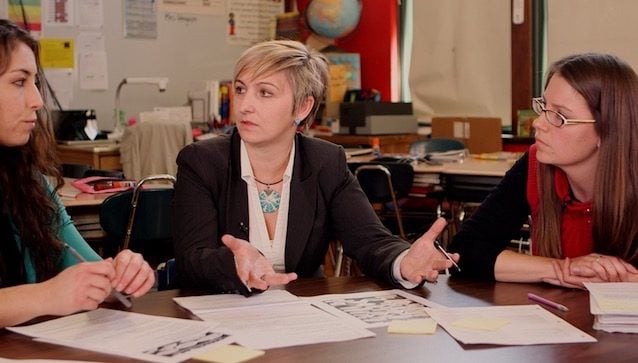Series: Focus on Collaboration
Focusing on What Teachers Learn From Student Work

Analyzing student work has many benefits, from better understanding children’s current mathematical thinking to considering how to adjust instruction. Even more powerful is engaging in productive discussions about student work with colleagues.
Last week at the National Council of Supervisors of Mathematic’s annual conference, Collaborative members presented practices and tools that coaches and supervisors find particularly helpful for teachers in the early grades. Central to what they discussed was this critical analysis of the work children are doing.
The practices presented and discussed involved a protocol around choosing a common task for children to do and afterwards allowing for teachers to analyze the results.
The first phase of the protocol involves examining what a task offers teachers in terms of understanding children’s thinking. Where are the different classrooms as far as their math reasoning? What kind of task is best suited to the formative assessment goal?
Next, teachers anticipate a range of possible strategies that children might use to find a solution. This practice helps teachers become receptive to a range of mathematical thinking and clarifies how concepts develop and how they are related. Teachers use the Landscape of Learning as an additional and valuable resource. View an example of such a meeting below.
The second phase of the protocol happens after children have completed the task. Each teacher brings a representative sample of student work (3 to 4 pieces) that reflects a range of abilities and may include incorrect or partially correct responses. The goal is to create a supportive, safe space for thinking together about implications for instruction.
What is particularly encouraging about practices such as these is that they provide a clear structure for teachers to collaborate in ways that keep the focus on children’s thinking and encourage self-reflection.
This tool was developed by the Early Math Collaborative at Erikson Institute with support from U.S. Department of Education Investing in Innovations Fund (i3) and CME Group Foundation.